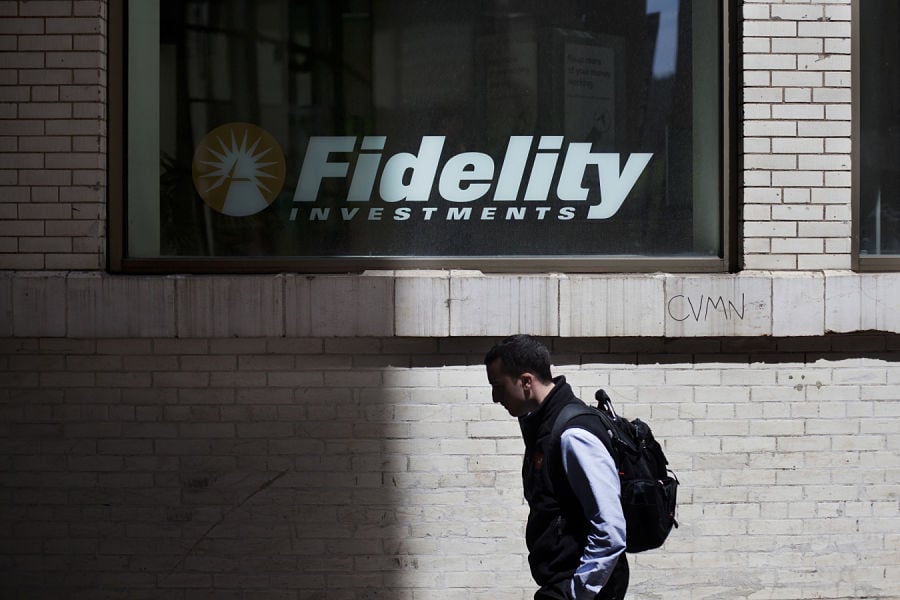

Fidelity Investment Co. launched a new business line Monday that's focused on compliance technology and offers products to create client communications and social media posts that stay in bounds of regulatory guidelines.
The technology pairs artificial intelligence with social listening to uncover potential risks, flagging noncompliant language and images in posts or videos before they land on the desk of compliance officers.
Called Saifr Scan and Saifr Review, the tools are designed to allow content creators and compliance officers to work within the same dashboard, while the technology scans the content for any red flags.
There's an annual subscription fee that varies depending on the size and complexity of the firm, according to a spokesperson.
“Regulations and content requirements in the financial services space are constantly changing, and will only continue to evolve,” said Vall Herard, managing director of Saifr. “Whether it’s written materials, social media content or new channels, creating compliant communications can create a volume problem for financial institutions.”
In December 2020, the Securities and Exchange Commission adopted a new rule aimed at modernizing marketing guidelines for financial advisers. The reforms address changes in technology and in consumer behavior to give advisers more freedom in their marketing tactics, especially on social media.
Concerns over the new rule were top of mind for advisers last year. Fifty-eight percent chose the advertising rule as their top compliance concern, up 33 percentage points from 2020, according to a poll of 350 registered investment advisory firms released by the Investment Adviser Association in September.
Compliance can be a lengthy and tedious process, involving internal and external teams, and can lead to several rounds of revision, which is less than ideal in the fast-paced world of Twitter and LinkedIn.
“Advisers and their firms spend lots of time and resources keeping themselves compliant,” said Charles Failla, a principal at Sovereign Financial Group Inc., who built a technology stack for his firm in 2019. “It may not be the most glamorous and most would agree it’s far from the most fun aspect of our business — but it's critical.”
For Failla, compliance was a major pain point in his decision to go independent. He now uses AdvisorAssist and Riskalyze Inc. as the core tech for the compliance process.
“Fintech now has compliance in their sites, and that’s a great thing,” he said. “If fintech companies can do for compliance what they’ve done for trading and rebalancing, it will be revolutionary.”
The Saifr tech was developed at Fidelity Labs, a fintech incubator located in the company’s Boston office, which has already created platforms to help save for college and retirement. The organization has a portfolio of new businesses currently in the works, and is constantly prototyping concepts for Fidelity’s latest ventures.
“If fintech can help make the compliance process better, there will be no shortage of advisers and firms looking to adopt,” Failla said.

"QuantumRisk, by design, recognizes that these so-called “impossible” events actually happen, and it accounts for them in a way that advisors can see and plan for," Dr. Ron Piccinini told InvestmentNews.

Advisors who invest time and energy on vital projects for their practice could still be missing growth opportunities – unless they get serious about client-facing activities.

The policy research institution calculates thousands in tax cuts for Washington, Wyoming, and Massachusetts residents on average, with milder reductions for those dwelling in wealth hotspots.

Yieldstreet real estate funds turned out to be far riskier than some clients believed them to be, according to CNBC.

The race to 100 transactions ended a month early this year, with April standing out as the most active month on record for RIA dealmaking.
Orion's Tom Wilson on delivering coordinated, high-touch service in a world where returns alone no longer set you apart.
Barely a decade old, registered index-linked annuities have quickly surged in popularity, thanks to their unique blend of protection and growth potential—an appealing option for investors looking to chart a steadier course through today's choppy market waters, says Myles Lambert, Brighthouse Financial.
